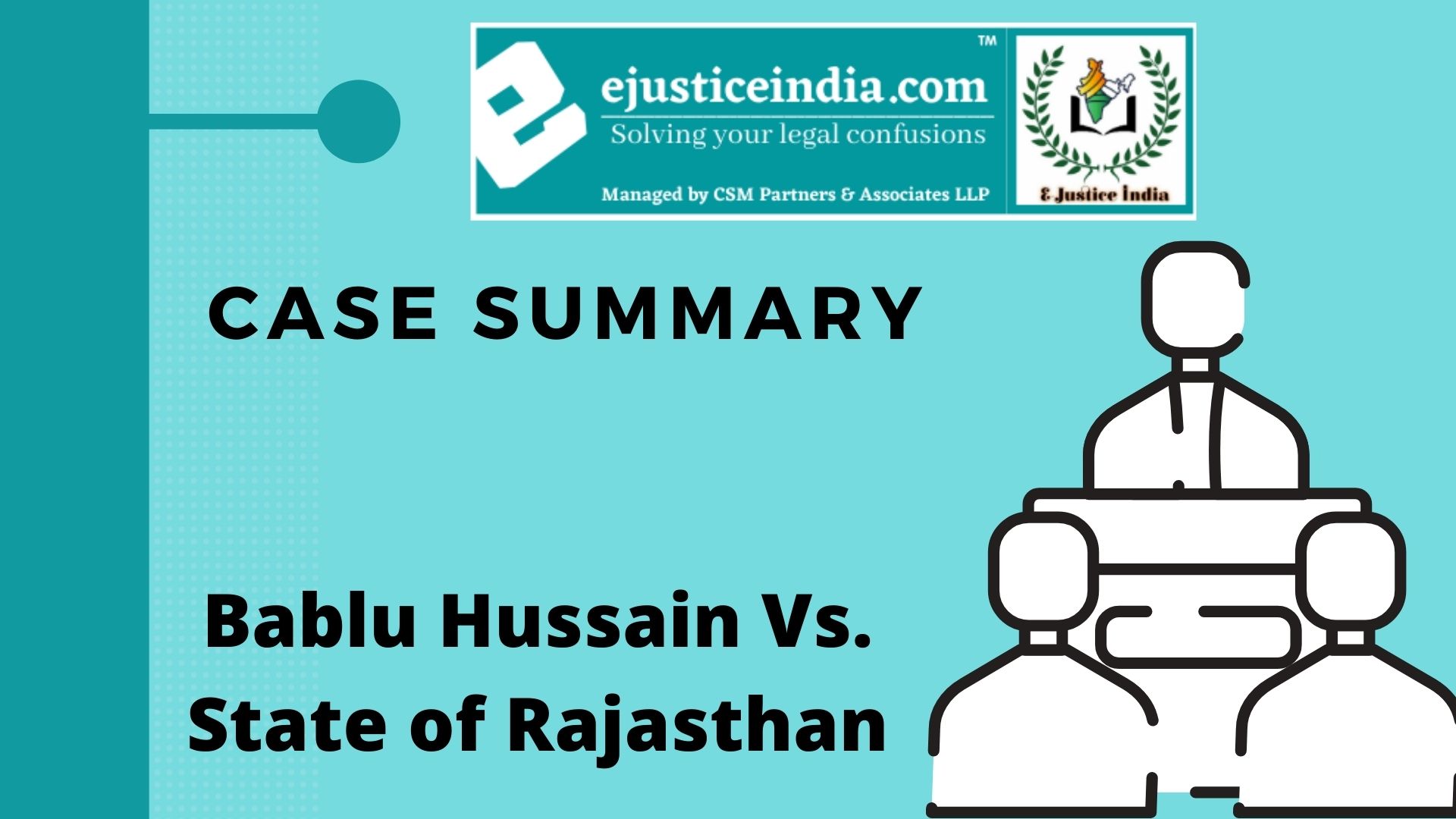B.K. Narayana Pillai Vs. Parameswaran Pillai – Case Summary
Author : J. Shuruthi
Case Name : B.K. Narayana Pillai Vs. Parameswaran Pillai
A) CITATION:
(2000) 1 SCC 712
B) BENCH:
Justice S.P.Kurdukara
Justice R.P.Sethi
C) INTRODUCTION:
The case explains about the amendment of written statements as under Order 6 Rule 17 of the Civil Procedure Code. The defendant has the right to take amendments in the plea which must not result in injustice to the other party. Here the appellant was the defendant in the suit for grant for mandatory and prohibiting injunction.
D) FACTS:
The suit was filed in the lower court for grant of mandatory and prohibiting injunction stating that the appellant- defendant was a licensee. But he held that he not a licensee but a lessee.
In the appeal to the Supreme Court regarding the amendments to the written statement by the appellant stating that in the case he was not a lessee then he was entitled to the benefit conferred to him under Section 60 b of the Indian Easements Act, 1882.
E) ISSUES AND FACTS OF LAW:
i) Whether the amendments made to the written statements is just and valid?
ii.) Whether the amendment causes irreversible legal damage to the defendant?
F) JUDGEMENT:
The leave was granted by the Supreme court and appeal was allowed by setting aside the impugned orders. The court held that the appellant- defendant was permitted to make amendments to the written statements so far as to incorporating the plea of his entitlement of benefit to him under Section 60(b) of the Indian Easements Act,1882 subject to the condition that he pays all the arrears on the account of the license fee.
G) ANALYSIS:
The court has observed in the present case that the principles that are applicable to the amendment of the plaint are applicable in the case of written statements as well. The defendant has the right to make amendments in the pleading subject to condition that the amendment must not be prejudicial to the rights of the other parties. No inconsistent allegations must be made in the amendment and the admissions that are made in the favour of the plaintiff should not be withdrawn. The court also mentioned that this right to make amendments in the pleadings is not that is available at all circumstances and the court must approach the matter in a liberal manner when the other side suffers any prejudice.


